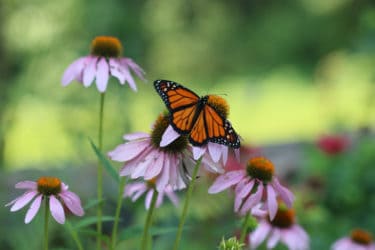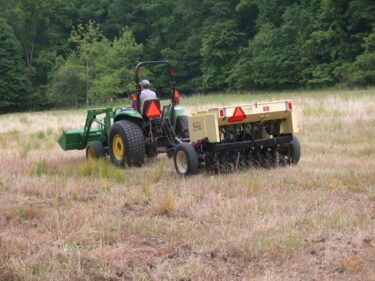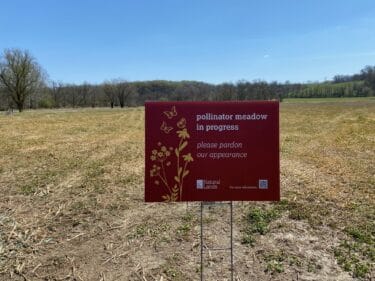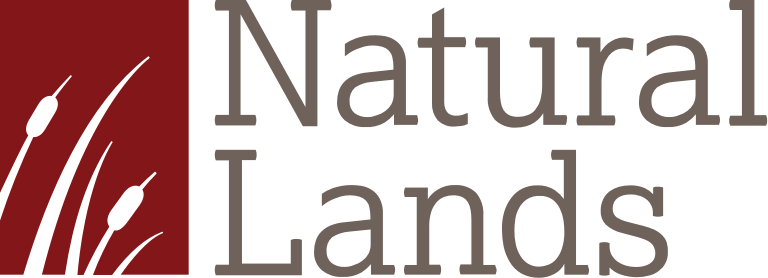pollinator meadows in progress.

A monarch butterfly sips nectar from purple coneflower. Photo: Daniel Barringer
Insects are the foundation of all life on Earth, and pollinators are especially vital. The U.S. Department of Agriculture estimates that 80 percent of the 1,400 plants that produce our food worldwide require pollination. And the bees, flies, butterflies, and hummingbirds that do that job need just the right kind of plants to thrive.
“Ninety percent of the insects that eat plants can develop and reproduce only on the plants with which they share an evolutionary history,” writes Doug Tallamy, a Natural Lands’ Board member, professor of entomology, and author of Nature’s Best Hope. “Introduced species on the other hand provide on average 68 percent less food for insects than native plants—this includes multiple species of caterpillars and pollinators, including native bees—that are crucial to the survival of local food webs.”
At Natural Lands, we are working to make our 42 nature preserves and one public garden havens for these essential critters.

The no-till drill minimizes disturbance of the soil when planting seeds. Because the meadows aren’t tilled, the plant residue that’s left on top of the soil decomposes naturally, increasing life forms and organic matter. It also reduces soil runoff. Overall, no till farming creates a healthier field ecology.
In the spring of 2023, our land stewardship teams at will install nearly 44 acres of new pollinator meadow: 17 acres at Bryn Coed, 20 acres at ChesLen, and seven acres at Stroud Preserve. The project will improve meadow habitat for pollinators—including monarch butterflies—and other insects by planting native species that provide food and nectar. The initiative kicked off in early April with the removal of existing vegetation, mostly grasses and hay.
Later in the season, staff members will plant a customized mix of native seeds using a no-till drilling method that minimizes soil disturbance. This type of planting method reduces runoff and prevents undesirable invasive weed seeds that may be dormant in the soil from germinating.
“Once the meadow is fully established—which will take about three years—we will mow annually to prevent trees and shrubs from growing,” said Darin Groff, regional manager of land stewardship for Natural Lands.
Natural Lands is unique among the region’s conservation organizations because of our large network of nature preserves totaling more than 23,000 acres. This gives us the opportunity to care for the land and embark on ambitious projects like this one. We strive to make every day and every acre count in our stewardship of the lands we steward.

Photo: Sean Quinn
But you don’t need to have thousands of acres to support pollinators. If you have access to any patch of dirt—from a pot on your front stoop, to a plot in a community garden, to a section of your yard, to every inch of your yard—you can make a difference. Plant native species! Remember that pollinators need more than just flowers for nectar, so include larval host plants as well. Click here for more information on plants to select and ideas on other actions you can take.
Generous support has been provided by George & Christy Martin for the project at Bryn Coed and by the E. Kneale Dockstader Foundation and the Conservancy Grant Program, Commissioners of Chester County for the project at ChesLen.
